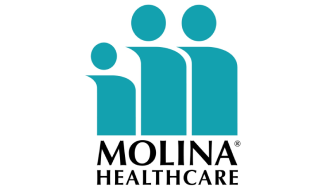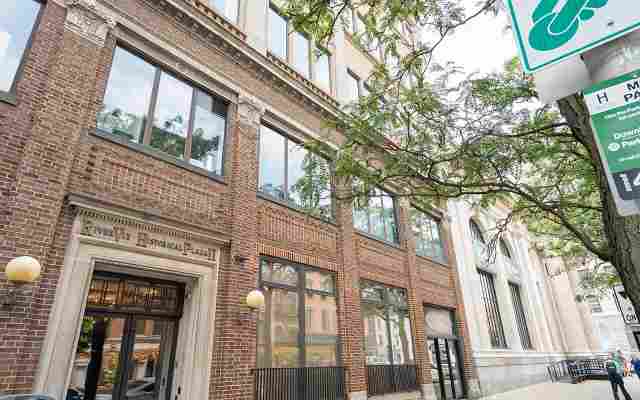
Saddle Brook, New Jersey, United States
Guardian Recovery - Saddle Brook Counseling Center
Verified
Verified
This provider’s information has been quality-checked by Recovery.com’s Research Team for accuracy and completeness, including center verification through appropriate third-party organizations.
Joint Commission Accredited
The Joint Commission accreditation is a voluntary, objective process that evaluates and accredits healthcare organizations (like treatment centers) based on performance standards designed to improve quality and safety for patients. To be accredited means the treatment center has been found to meet the Commission's standards for quality and safety in patient care.
Provider's Policy
Guardian Recovery ensures that individuals can access top-notch mental health treatment services. To facilitate your journey to well-being, we proudly welcome a wide range of health insurance providers.
Highlights from the Center
Highlights
These highlights are provided by and paid for by the center.
Customized Treatment Plans
Wellness Emphasis
Trauma-Informed Care
12-Step Approach
About Guardian Recovery - Saddle Brook Counseling Center
Guardian Recovery - Saddle Brook Counseling Center offers separate intensive outpatient programs (IOP) for clients with addiction and clients with mental health concerns. They provide a diverse range of evidence-based therapies and services tailored to individual needs, set within a supportive and flexible outpatient framework designed to foster long-term recovery and personal growth. Their comprehensive care includes various therapeutic modalities like cognitive behavioral therapy (CBT), family workshops, medication management, and specialized groups, all designed to address the multifaceted aspects of addiction and mental health disorders.
Integrating Recovery Strategies into Daily Life
Guardian Recovery - Saddle Brook Counseling Center helps clients apply recovery tools in real-life situations, encouraging self-confidence and integration into society. Their services are structured to provide continuous support through evidence-based practices and the compassionate guidance of their experienced professionals. A level up from intermittent therapy sessions, Guardian Recovery - Saddle Brook Counseling Center offers psychiatric services, support groups, and medication management, as well as individual, group, and family therapy. They use a combination of CBT, dialectical behavior therapy (DBT), eye movement desensitization and reprocessing (EMDR), and a 12-Step focus to help clients develop coping strategies, recognize triggers, and build a supportive network for long-term recovery.
Evening Scheduling
Recognizing the complexities of daily life, Guardian Recovery - Saddle Brook Counseling Center allows clients to maintain their professional and personal commitments while engaging in comprehensive recovery services. Their evening IOP is designed with the flexibility to help clients integrate the crucial aspects of recovery into their daily routines, helping ensure that treatment does not disrupt their work, family life, or educational pursuits. This thoughtful scheduling reflects their commitment to providing care that respects the individual’s time and responsibilities, promoting a balanced approach to recovery. The evening IOP runs Monday through Thursday, from 6 p.m. to 9 p.m. EST.
Relaxation and Social Interaction
The overall environment at Guardian Recovery - Saddle Brook Counseling Center is one of tranquility and safety, creating an ideal setting for clients to focus fully on their recovery. The spaces are carefully curated, blending modern aesthetics with a cozy ambiance to create a tranquil haven ideal for personal reflection and growth. Clients have access to spacious group therapy rooms, private counseling areas, and common spaces designed for relaxation and social interaction.
Read More

Insurance Accepted
Provider's Policy:Guardian Recovery ensures that individuals can access top-notch mental health treatment services. To facilitate your journey to well-being, we proudly welcome a wide range of health insurance providers.
More Guardian Recovery Locations
Mental Health IOP
For clients diagnosed with a mental health disorder such as anxiety, depression, bipolar disorder, or post-traumatic stress disorder (PTSD), Guardian Recovery - Saddle Brook Counseling Center offers a structured therapeutic IOP with psychiatric treatment and counseling. Therapeutic modalities include CBT, DBT, and EMDR. Group therapy sessions offer a supportive community environment where clients can share experiences and challenges, fostering a sense of belonging and mutual support.
Skills Workshops and Educational Sessions
Guardian Recovery - Saddle Brook Counseling Center’s IOP incorporates practical skills workshops focusing on relapse prevention, stress management, and effective communication, all of which are vital for successful recovery and reintegration into daily life. To deepen understanding of addiction and mental health, educational sessions cover topics such as the science of addiction, the impact of substances on the body and mind, and strategies for maintaining sobriety.
Sober Living Partnerships
As a valuable addition, Guardian Recovery - Saddle Brook Counseling Center partners with local sober living facilities to provide supportive, vibrant communities to practice sobriety in real-world settings. The proximity of these homes to the IOP center helps clients easily access services, attend sessions, and continue to benefit from the structured support of the program. These facilities promote independence while providing a level of accountability that helps prevent relapse.
Family Involvement
Guardian Recovery - Saddle Brook Counseling Center understands that addiction affects the entire family system and encourages families to participate in their loved one’s treatment while seeking healing of their own. They offer family therapy sessions as part of their evening IOP, creating space for open discussions and developing a plan for productively dealing with challenges.

Center Overview
Men and Women
Men and women attend treatment for addiction in a co-ed setting, going to therapy groups together to share experiences, struggles, and successes.

Treatment Focus
You can admit to this center with a primary substance use disorder or a primary mental health condition. You'll receive support each step of the way and individualized care catered to your unique situation and diagnosis.
Treatment
Specializations
Alcohol
Using alcohol as a coping mechanism, or drinking excessively throughout the week, signals an alcohol use disorder.
Co-Occurring Disorders
A person with multiple mental health diagnoses, such as addiction and depression, has co-occurring disorders also called dual diagnosis.
Drug Addiction
Drug addiction is the excessive and repetitive use of substances, despite harmful consequences to a person's life, health, and relationships.
Eye Movement Therapy (EMDR)
Lateral, guided eye movements help reduce the emotional reactions of retelling and reprocessing trauma, allowing intense feelings to dissipate.
Licensed Primary Mental Health
Some primary care providers offer mental health diagnosis and treatment. This can prevent patients from developing more serious conditions.
Wellness
Wellness philosophies focus on the physical, mental, and spiritual wellness of each patient, helping them restore purpose with natural remedies.
Treatment Services
Intensive Outpatient Program
In an IOP, patients live at home or a sober living, but attend treatment typically 9-15 hours a week. Most programs include talk therapy, support groups, and other methods.
Outpatient
During outpatient rehab, patients attend a structured treatment program while continuing to live at home.
Approaches
Evidence-Based
A combination of scientifically rooted therapies and treatments make up evidence-based care, defined by their measured and proven results.
Personalized Treatment
The specific needs, histories, and conditions of individual patients receive personalized, highly relevant care throughout their recovery journey.
Therapies
1-on-1 Counseling
Patient and therapist meet 1-on-1 to work through difficult emotions and behavioral challenges in a personal, private setting.
Family Therapy
Family therapy addresses group dynamics within a family system, with a focus on improving communication and interrupting unhealthy relationship patterns.
Psychoeducation
This method combines treatment with education, teaching patients about different paths toward recovery. This empowers them to make more effective decisions.
Relapse Prevention Counseling
Relapse prevention counselors teach patients to recognize the signs of relapse and reduce their risk.
Conditions We Treat
Schizophrenia
Schizophrenia is a serious mental health condition that causes hallucinations, delusions, and disordered thinking.
ADHD, ADD
ADHD is a common mental health condition caused by dopamine imbalance. Common symptoms include inattention, hyperactivitiy, and impulsivity.
Anxiety
Anxiety is a common mental health condition that can include excessive worry, panic attacks, physical tension, and increased blood pressure.
Bipolar
This mental health condition is characterized by extreme mood swings between depression, mania, and remission.
Depression
Symptoms of depression may include fatigue, a sense of numbness, and loss of interest in activities. This condition can range from mild to severe.
Obsessive Compulsive Disorder (OCD)
OCD is characterized by intrusive and distressing thoughts that drive repetitive behaviors. This pattern disrupts daily life and relationships.
Post Traumatic Stress Disorder
PTSD is a long-term mental health issue caused by a disturbing event or events. Symptoms include anxiety, dissociation, flashbacks, and intrusive thoughts.
Trauma
Some traumatic events are so disturbing that they cause long-term mental health problems. Those ongoing issues can also be referred to as "trauma."
Substances We Treat
Alcohol
Using alcohol as a coping mechanism, or drinking excessively throughout the week, signals an alcohol use disorder.
Benzodiazepines
Benzodiazepines are prescribed to treat anxiety and sleep issues. They are highly habit forming, and their abuse can cause mood changes and poor judgement.
Co-Occurring Disorders
A person with multiple mental health diagnoses, such as addiction and depression, has co-occurring disorders also called dual diagnosis.
Cocaine
Cocaine is a stimulant with euphoric effects. Agitation, muscle ticks, psychosis, and heart issues are common symptoms of cocaine abuse.
Drug Addiction
Drug addiction is the excessive and repetitive use of substances, despite harmful consequences to a person's life, health, and relationships.
Ecstasy
Ecstasy is a stimulant that causes intense euphoria and heightened awareness. Abuse of this drug can trigger depression, insomnia, and memory problems.
Heroin
Heroin is a highly addictive and illegal opioid. It can cause insomnia, collapsed veins, heart issues, and additional mental health issues.
Psychedelics
Hallucinogenic drugs—like LSD—cause euphoria and increased sensory experiences. When abused, they can lead to depression and psychosis.
Methamphetamine
Methamphetamine, or meth, increases energy, agitation, and paranoia. Long-term use can result in severe physical and mental health issues.
Opioids
Opioids produce pain-relief and euphoria, which can lead to addiction. This class of drugs includes prescribed medication and the illegal drug heroin.
Aftercare
Professional Staff

Joshua Scott
Chief Executive Officer

Ryan Soave
Chief Clinical Officer
LMHC

Charrisse Clark-Smith
Chief Nursing Officer
RN

Kenny Silver
Vice President of Treatment Services
View More Team Members
Learn more about Guardian Recovery - Saddle Brook Counseling Center
We love hearing about your treatment experience
Help individuals and families seeking treatment by sharing your first-hand experience with this treatment provider. Review Guidelines.





































